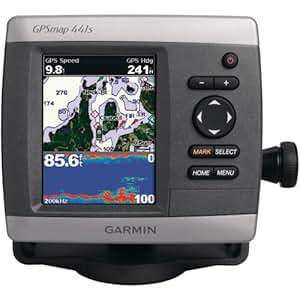We rely on GPS navigators daily for efficient and convenient travel. But have you ever stopped to think about the data these handy devices collect and what that means for your privacy? This article dives deep into the world of GPS navigation and privacy, exploring the potential risks and offering practical steps to protect your personal information.
What Data Do GPS Navigators Collect?

Modern GPS navigators, whether built into your car or used as a standalone device (like a smartphone app), collect far more data than just your current location. The amount and type of data vary depending on the device and app, but common collections include:
- Precise Location Data: This is the most obvious; your GPS constantly tracks your latitude and longitude, providing real-time location information.
- Speed and Direction: Your speed and direction of travel are also recorded, creating a detailed log of your movements.
- Destinations and Route History: Every destination you input and every route you take is often stored, building a profile of your travel habits.
- Search History: If you use search functions within the navigation app, those searches are likely recorded, revealing information about the places you’re interested in visiting.
- Device Information: The GPS navigator may also collect data about your device itself, such as its model, operating system, and unique identifiers.
- Traffic Data: Many GPS navigators provide real-time traffic information. This data collection helps improve traffic flow predictions, but it also contributes to the overall data collected about your travel patterns.
The Privacy Implications of GPS Data Collection

The extensive data collected by GPS navigators raises several privacy concerns:
- Location Tracking: Constant location tracking can be a major privacy concern. This data could be used to monitor your movements, potentially revealing personal information about your daily routines, relationships, and activities.
- Data Breaches: Like any connected device, GPS navigators are vulnerable to data breaches. If a breach occurs, your personal travel data could be exposed to malicious actors.
- Data Sharing and Marketing: Navigation app providers may share your data with third-party companies for marketing and advertising purposes. This often happens without explicit user consent, leading to targeted advertising based on your travel patterns.
- Law Enforcement Access: Law enforcement agencies may have access to your GPS data, potentially without your knowledge or consent, depending on local laws and regulations.
- Insurance Implications: Insurance companies may request access to your GPS data to assess your driving behavior and determine premiums. This can affect your insurance rates.
Protecting Your Privacy While Using GPS Navigators

While completely avoiding data collection is virtually impossible, you can take steps to minimize the risk:
- Review Privacy Policies: Before using any GPS navigation app or device, carefully read its privacy policy to understand what data is collected, how it’s used, and with whom it’s shared.
- Limit Data Sharing: Configure your GPS settings to minimize data sharing wherever possible. Disable features you don’t need, such as location history or search history logging.
- Use VPNs (with Caution): A VPN (Virtual Private Network) can mask your IP address and encrypt your internet traffic. However, this won’t necessarily prevent your GPS location from being tracked by the navigation app itself. A VPN primarily protects against data interception during online communications rather than GPS data collection by the app itself.
- Delete Location History Regularly: Most GPS apps allow you to delete your location history. Do this regularly to reduce the amount of data stored about your movements.
- Choose Reputable Apps: Stick to established and reputable navigation apps from well-known companies with a history of respecting user privacy.
- Be Mindful of App Permissions: Carefully review and manage the permissions granted to navigation apps on your device. Only allow access to the necessary permissions.
- Use Offline Maps: For some trips, consider using offline maps to avoid real-time data collection while navigating.
GPS navigators are invaluable tools, but understanding their privacy implications is essential. By being aware of the data collected, the potential risks, and the steps you can take to protect your information, you can enjoy the convenience of GPS navigation while safeguarding your personal privacy.
Remember, staying informed and proactive is key to maintaining control over your digital footprint and ensuring a safe and secure driving experience.